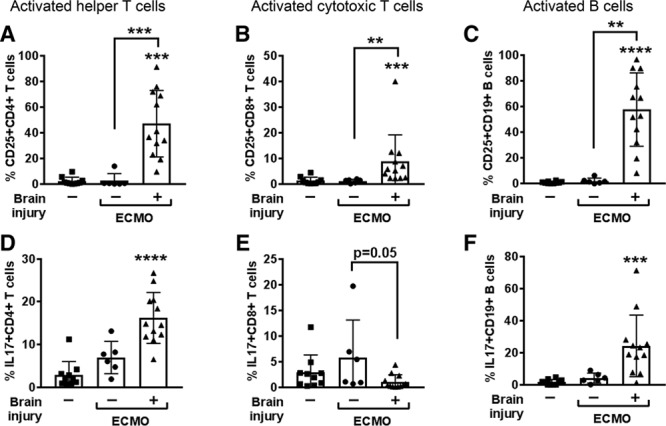Figure 3.

Plasma from brain-injured patients supported with extracorporeal membrane oxygenation (ECMO) drives healthy adaptive immune cells toward a pro-inflammatory phenotype. Black bar graphs show nonparametric Kruskal-Wallis analysis of variance results for triplicate experiments for activation status (CD25+, n = 6) of (A) CD4+ helper T cells, (B) CD8+ cytotoxic T cells, and (C) CD19+ B cells after exposure to healthy plasma-containing media (left columns, squares, n = 5), or ECMO patient-derived plasma-containing media from patients without brain injury (middle columns, circles, n = 2), or with brain injury (right columns, triangles, n = 4). Permutations of test conditions resulted in 10 test conditions for control plasma, six for nonbrain injury ECMO, and 13 for brain injury ECMO. Plasma from ECMO patients with brain injury also elevated intracellular interleukin (IL)–17 production in (D) helper T cells and (F) B cells, but not (E) cytotoxic T cells. Values are mean ± sd and significance between groups on an individual day is shown as *p < 0.05, **p < 0.01, ***p < 0.001, ****p < 0.0001 versus healthy plasma unless otherwise indicated by brackets.
